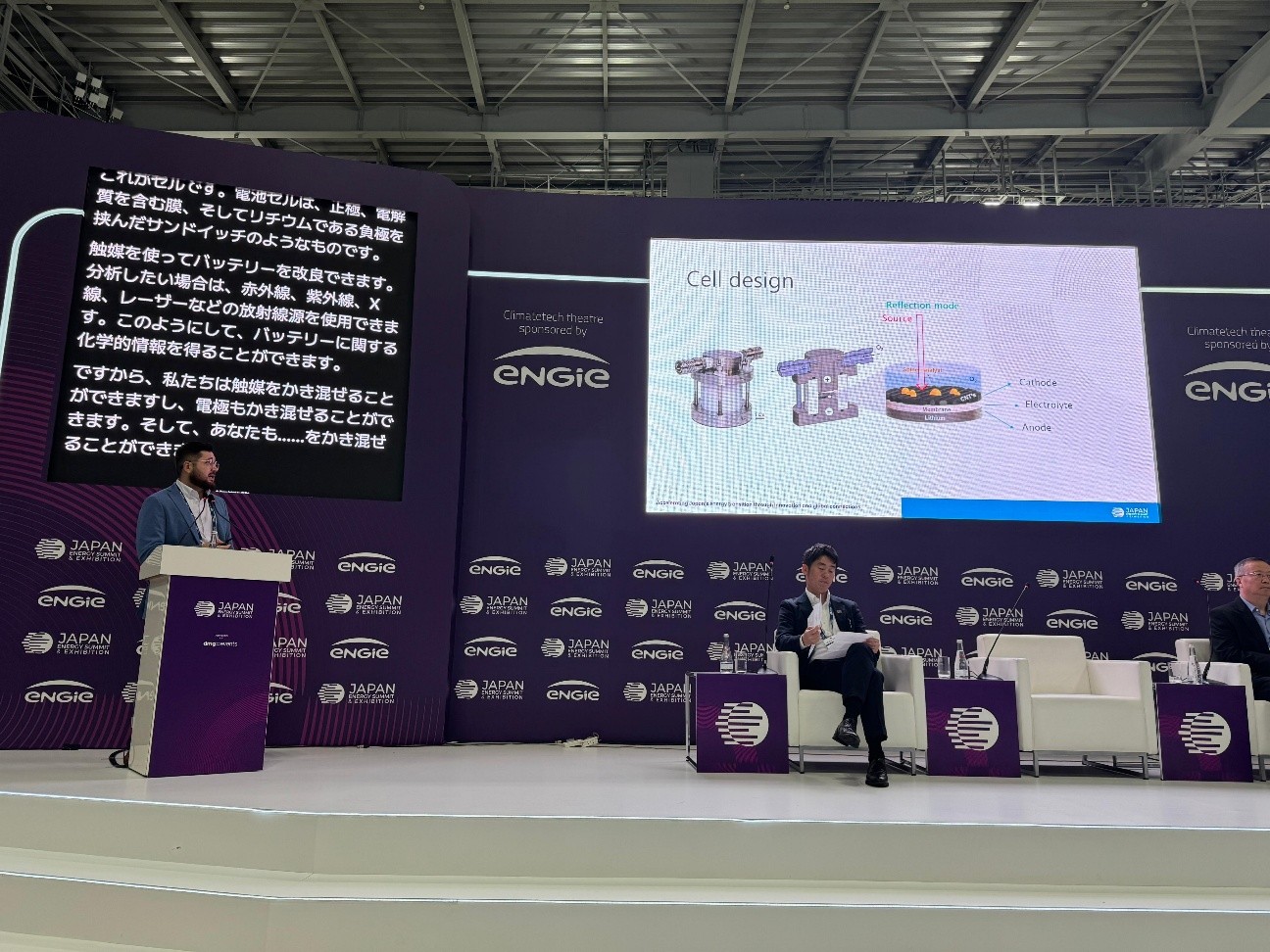CINE’s advances in LiO2 batteries spark interest at event in Japan

CINE postdoctoral fellow André Navarro de Miranda attended the Japan Energy Summit & Exhibition 2025, where he presented research on lithium-oxygen (Li-O₂) batteries carried out within CINE’s Advanced Energy Storage (AES) division.
The event, held in Tokyo from June 18 to 20, brought together approximately 6,000 participants from around the world, primarily executives, policymakers, and professionals from the energy sector.
Lithium-oxygen batteries are promising because of their ability to store much larger amounts of energy than conventional batteries. “Since 2018, CINE’s AES division, based at Unicamp, has been dedicated to developing and improving this technology,” says André, who is a member of the division. “During this time, we have developed several prototypes and advanced characterization methodologies,” he explains.
One of the main results achieved was the performance of operando studies — chemical analyses carried out in real time during the device’s charge and discharge cycles. “By fully understanding how these batteries work, we can optimize the components and work toward a commercially viable prototype,” the postdoctoral fellow explains.
André gave a 15-minute presentation, followed by a 30-minute roundtable discussion with the audience and two other speakers. “The session’s unique and dynamic format encouraged the exchange of ideas and an in-depth exploration of the topics,” he says.
According to the postdoctoral fellow, CINE’s advances attracted considerable interest. “On the academic side, the focus of discussion was on the technical challenges, especially the stability and life cycle of these batteries, which still need to be improved,” he reports. “From a commercial perspective, the main concern was economic viability, since the materials are not yet part of a consolidated supply chain, unlike traditional lithium-ion batteries,” he adds.
Contact

Gustavo Doubek
UNICAMP

